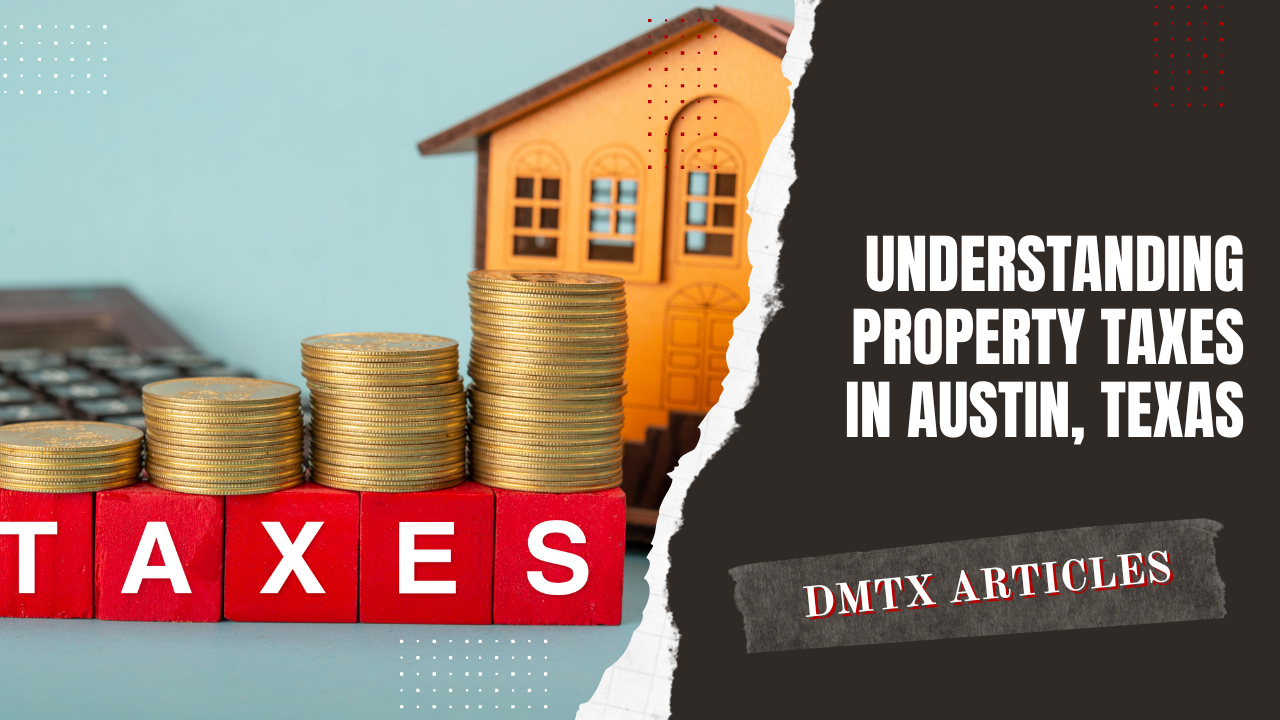Property taxes are a significant consideration for homeowners in Austin, Texas. Whether you’re a first-time homebuyer or a seasoned property owner, understanding how property taxes work can help you budget effectively and avoid surprises. This comprehensive guide will walk you through everything you need to know about property taxes in Austin, including how they are calculated, where the money goes, and tips for managing your property tax bill.
1. What Are Property Taxes?
Property taxes are levies imposed by local governments on real estate properties. These taxes fund essential services such as public schools, roads, emergency services, and local government operations. In Austin, property taxes are determined by the appraised value of your property and the combined tax rates of various taxing entities.
2. How Are Property Taxes Calculated?
Property Valuation
- Appraisal District: The Travis Central Appraisal District (TCAD) is responsible for appraising property values in Austin. Property values are assessed annually based on market conditions and property characteristics.
- Market Value: This is the price your property would likely sell for in the current market. TCAD uses recent sales data of comparable properties to determine this value.
- Assessed Value: In Texas, the assessed value is the same as the market value unless you qualify for exemptions or other value limitations.
Tax Rates
- Local Taxing Entities: Property taxes in Austin are collected by various entities, including the city, county, school districts, and special districts (such as hospital and community college districts).
- Combined Tax Rate: Each entity sets its own tax rate, which is then combined to determine the overall tax rate for your property. For example, in 2023, the combined tax rate for a property in Austin might include rates from the City of Austin, Travis County, Austin Independent School District, and Austin Community College.
- Tax Rate Formula: Property Tax = (Assessed Value) x (Combined Tax Rate).
Example Calculation
If your home is appraised at $300,000 and the combined tax rate is 2.2%, your annual property tax bill would be calculated as follows:
Property Tax=$300,000×0.022=$6,600\text{Property Tax} = \$300,000 \times 0.022 = \$6,600
3. Understanding Exemptions and Limitations
Homestead Exemption
- Primary Residence: Homeowners who use the property as their primary residence can qualify for a homestead exemption, which reduces the taxable value of the property.
- General Exemption: The standard homestead exemption in Texas reduces the assessed value of your home by $25,000 for school district taxes.
Additional Exemptions
- Over-65 Exemption: Homeowners aged 65 or older can qualify for additional exemptions, which further reduce their tax burden.
- Disability Exemption: Homeowners with disabilities may also qualify for additional exemptions.
- Veterans Exemption: Disabled veterans and their surviving spouses can receive substantial property tax exemptions based on their disability rating.
Tax Ceiling
- Over-65 and Disabled: For homeowners over 65 or disabled, the school district taxes on their homestead are “frozen” at the amount paid in the first year they qualify, preventing increases in these taxes unless improvements are made to the property.
4. Paying Your Property Taxes
Tax Bills
- Issuance: Property tax bills are typically mailed in October and are due by January 31 of the following year.
- Payment Methods: You can pay your property taxes online, by mail, or in person. Most counties offer installment payment plans if you cannot pay the full amount by the deadline.
Penalties and Interest
- Late Payments: If you miss the January 31 deadline, penalties and interest will be added to your tax bill. The penalty starts at 6% in February and increases monthly until it reaches 12% in July, with an additional interest charge of 1% per month.
5. Disputing Your Property Valuation
Appeal Process
- Notice of Appraised Value: If you believe your property’s appraised value is too high, you have the right to appeal. TCAD sends a Notice of Appraised Value each spring.
- Filing an Appeal: File a protest with TCAD by the deadline (usually May 15 or 30 days after receiving the notice, whichever is later). You can do this online, by mail, or in person.
- Appraisal Review Board (ARB): The ARB will hear your case and make a determination. Be prepared with evidence such as recent sales data of comparable properties or an independent appraisal.
6. Where Do Property Taxes Go?
Public Schools
- Major Portion: A significant portion of property taxes goes to local school districts, funding public education, teacher salaries, school maintenance, and programs.
City and County Services
- City of Austin: Funds city services like police and fire departments, parks and recreation, libraries, and public health.
- Travis County: Supports county operations, including law enforcement, the judicial system, infrastructure, and social services.
Special Districts
- Hospital Districts: Provide funding for public health services and hospital operations.
- Community Colleges: Support local community colleges, funding education programs, facilities, and staff.
7. Tips for Managing Your Property Tax Bill
Budgeting
- Annual Expense: Treat property taxes as an annual expense and budget accordingly. Some mortgage lenders offer escrow accounts to help manage this.
Tax Exemptions
- Apply Early: Ensure you apply for any exemptions for which you qualify as soon as possible.
Professional Help
- Tax Advisors: Consider consulting a property tax advisor if you have a complex situation or need help appealing your appraisal.
Conclusion
Understanding property taxes in Austin is essential for effective financial planning and homeownership. By familiarizing yourself with how property taxes are calculated, the available exemptions, and the payment process, you can manage your property tax obligations more efficiently. Whether you’re a new homeowner or have owned property in Austin for years, staying informed about property taxes will help you navigate the financial responsibilities of owning a home in this dynamic city.


